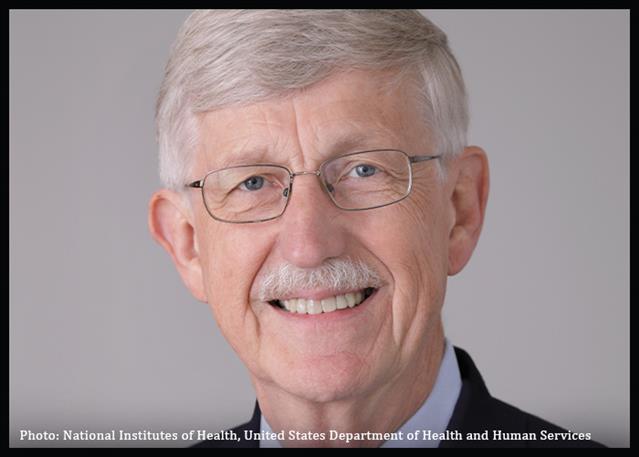
Francis Collins recently shared an essay with The Washington Post regarding his prostate cancer diagnosis and treatment, in order to “lift a veil and share lifesaving information”.
The former director of the National Institutes of Health wrote that he earlier noticed a slight rise in his prostate-specific antigen or PSA levels, indicating the presence of prostate cancer in men aged 65 or older, but he did not proceed with any further tests.
About a month ago, Collins underwent certain tests, which revealed an enlarged tumor and high PSA levels.
“New biopsies taken from the mass showed transformation into a much more aggressive cancer,” Collins revealed in the essay. “When I heard the diagnosis was now a 9 on a cancer-grading scale that goes only to 10, I knew that everything had changed.”
The 73-year-old former director who heads the President’s initiative to “eliminate hepatitis C” in the U.S., has now decided to undergo a radical prostatectomy, a surgical procedure to remove the prostate gland, later this month.
“While there are no guarantees, my doctors believe I have a high likelihood of being cured by the surgery,” Collins wrote.
“I want all men to have the same opportunity that I did. Prostate cancer is still the No. 2 killer of men,” he continued.
According to the National Cancer Institute, prostate cancer was the fifth-most leading cause of cancer-related deaths in the U.S. in 2020.
Prostate cancer, which affects the prostate gland, is the most commonly diagnosed cancer among men. Initially, it is hard to detect due to its slow growth, but over time it grows aggressive and starts showing symptoms like pain or difficulty during urination, frequent urination especially at night, blood in urine or semen, painful ejaculation, and weak urine flow.
The best way to detect prostate cancer early is with a PSA testing along with a physical exam. After proper diagnosis, it can be treated with various approaches, such as active surveillance, radiation therapy, hormone therapy, chemotherapy, immunotherapy and radical prostatectomy, based on their aggressiveness, cancer stage and medical condition of the patient.
Collins emphasized in his essay that early detection helps the patient to treat the disease. He also noted that Black men tend to be at a higher risk of suffering from prostate cancer and have a high mortality rate.
If untreated, the patient would suffer from erectile dysfunction, infertility, urinary and bowel problems, fatigue and several bone health issues.
According to the U.S. Preventive Services Task Force, men aged between 55 and 69 should undergo regular screening.
Collins concluded, “I want all men to benefit from the medical research to which I’ve devoted my career and that is now guiding my care.”
Copyright © 2024, RTTNews.com, Inc. All Rights Reserved.















